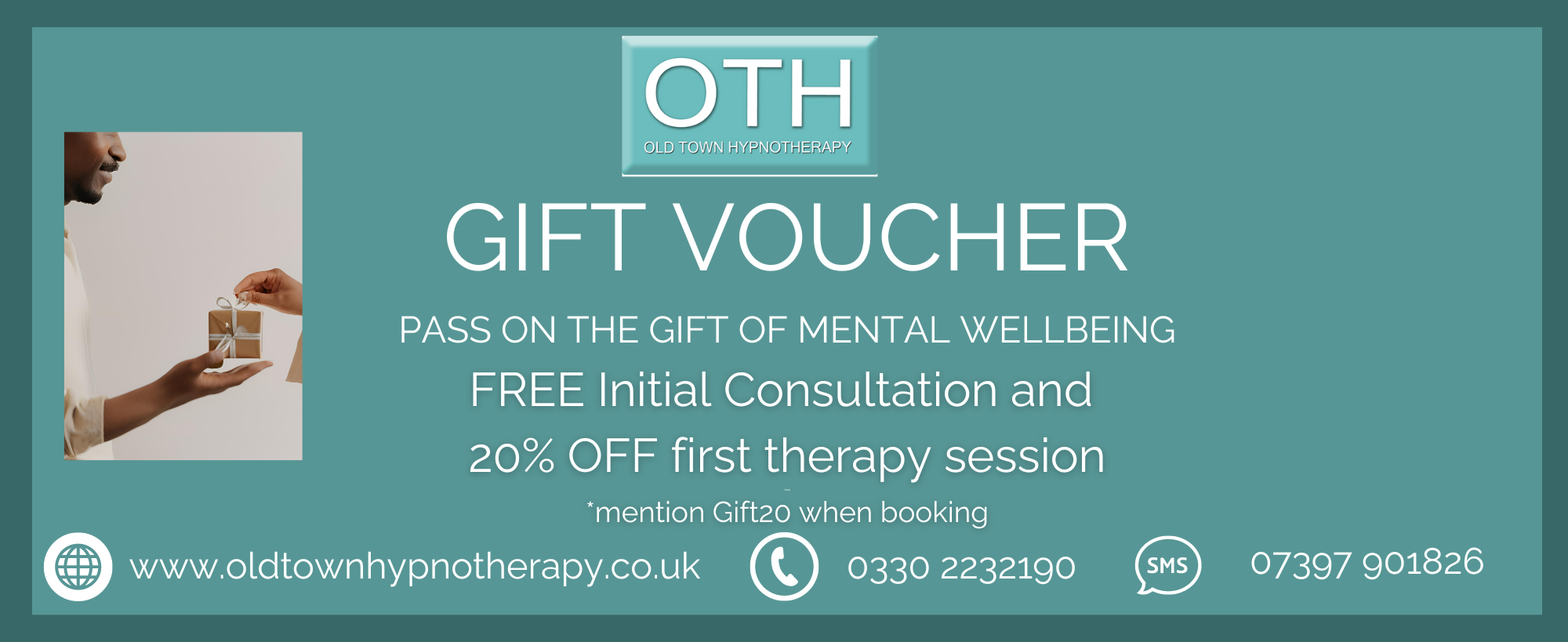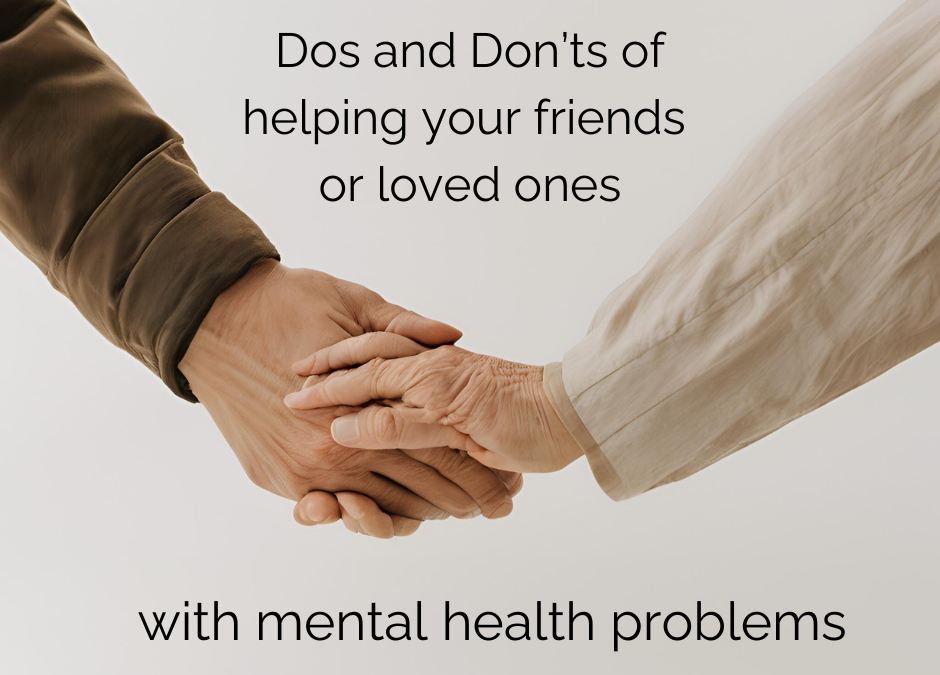-
“1 in 4 people will experience mental health problems each year in the UK”
-
“1 in 6 people report experiencing a common mental health problem in any given week in England”
(https://www.mind.org.uk/information-support/types-of-mental-health-problems/mental-health-facts-and-statistics/ (accessed 26/7/24)
Those are just the known statistics; many more are thought to be suffering in silence or not seeking help. So, the chances are you or someone you know is struggling mentally.
Often people will resist seeking help because, despite efforts and campaigning, mental ill-health still carries a stigma and people are reluctant to speak up.
This reluctance to get help sadly is also one of the symptoms of anxiety and depression, people will worry they can’t be helped or that other people will judge them so they struggle alone repeating the same survival strategies over and over again which often makes it worse.
Sometimes you know a friend or loved one is struggling but they’re either in denial or don’t want to talk about it, sometimes the opposite is true and you become the crutch, the one they offload to. However, despite your best efforts, they don’t take your advice and won’t get help. So, what can you do?
There are several strategies you can use that will subtly guide them in the right direction:
But first, there are two essential things you need to understand:
- Our brains don’t know the difference between imagination and reality.
- How we think will determine how we feel which determines our actions.
So, with that in mind:
DO
Refocus Their Attention
You can use the knowledge about imagination and thoughts leading to feelings. To help redirect their focus onto more positive things.
People with mental health problems will be told to ‘think positively’ – whereas this is true and will help, for that person, it can seem impossible to know how, it’s not a practical action they can easily take, and will seem futile. Sadly it has become an unhelpful overused mantra.
But you can redirect their thoughts through what you do:
Positive thinking: Talk about things that make them (or you) happy, that they’re interested in, other people’s stuff, inconsequential things.
Positive activity: Doing things, anything that engages their brain will help and do it with them. A day out, taking care of the kids so they get some quality time to themselves to do something, crafting –anything creative is particularly helpful. Also super helpful is exercise, going for a walk with them, swimming, or anything that involves either relaxing or increasing the heart rate through exercise.
Positive Interaction: Encourage them to spend time with people they enjoy being with. Often this will mean reconnecting with friends which can be a challenge for anyone who has started isolating themselves. Humans are not meant to be solitary but isolating oneself can be a reaction to illness (mental as well as physical), and then it becomes much harder for someone who has negative thoughts about almost everything to re-engage. However, they must spend time with people they feel safe with and close to – which may well be you. You must not, however, take the burden onto yourself, you need to look after yourself as a priority.
When you help someone to distract from their negative thoughts you are helping them to:
- Create a different balance of neurotransmitters and hormones in their body which will change the way they feel. For example, doing something positive will reduce unhelpful stress hormones like adrenalin and cortisol and increase good neurotransmitters such as serotonin, dopamine, oxytocin, and GABA.
- Engage with a different part of their brain responsible for working out solutions instead of focussing on the problems.
Use third-party parallels
Rather than telling someone directly what they should do (they often won’t take your advice anyway which can be super frustrating), use parallel examples of famous people who have received help for their problems, for example:
Lily Allen – The British singer has spoken about using hypnotherapy to quit smoking and manage anxiety.
Geri Halliwell – The former Spice Girl has used hypnotherapy to address issues related to her eating disorder and anxiety.
Matt Damon – The actor has credited hypnotherapy for helping him quit smoking and manage stress.
Adele – The singer has used hypnotherapy to overcome stage fright and manage anxiety.
Ellen DeGeneres – The talk show host used hypnotherapy to quit smoking and has discussed the positive effects it had on her overall mental health.
David Beckham – The soccer star has reportedly used hypnotherapy to manage stress and improve his mental resilience.
Orlando Bloom – The actor has utilized hypnotherapy to overcome his fear of heights and manage stress.
Jackie Kennedy Onassis – The former First Lady used hypnotherapy to cope with the trauma and grief after the assassination of President John F. Kennedy.
Bruce Willis – The actor has used hypnotherapy to help him quit smoking and manage stress-related issues.
Kevin Costner – The actor used hypnotherapy to help him overcome his fear of flying and manage anxiety.
These individuals have shared their positive experiences with hypnotherapy, which has helped them address various mental health challenges, from anxiety and stress to overcoming specific fears and habits. You can drop into a conversation when someone famous or another friend/relative/neighbour feels much better after they had hypnotherapy or some other form of treatment. It will be registered.
DON’T
Ask how they are.
This may seem a bit callous, but there is a very good reason why you should not encourage someone to talk about their mental health problems.
If you ask someone who you know to be dealing with a mental health problem how they feel, this is what will happen for them:
- They internally analyse how bad they’re feeling
- They invoke those feelings
- They repeat those feelings and how bad things are to you
- They relive the miserable or anxious feelings
So, although it may seem the kind and thoughtful thing to do, it can reinforce or even make things worse.
If the person brings up their problems themselves, then of course you should listen. Often offloading to a sympathetic ear is enough, but don’t engage more than you need to, and don’t bring it up if they don’t.
Pressurise someone into or out of something.
Mental health issues are complex and above all the person suffering needs to feel in control. For example, if someone has a cleaning OCD, do not try to stop them or give them a hard time, it will increase pressure which will in turn increase the OCD activity. Neither should you buy into it and help their OCD by providing cleaning products for them. Use the distraction techniques above to do something different.
Another example is if someone is developing agoraphobia or social anxiety and is afraid of specific places or situations, don’t put them in a position of having to confront it – it will increase the anxiety, but it does not reduce it. Exposure is an accepted form of therapy, but most importantly the sufferer must decide how far they can go and anxiety needs to be reduced first; leave it to the professionals.
Finally, there are other subtle ways you can get a message out to loved ones.
- Leave leaflets around
- Tell them about others who have decided to get help
- Post discounts to helpful sites like Old Town Hypnotherapy on your social media
- Let them know Old Town Hypnotherapy offers a free initial consultation, no harm in finding out if it can help.
At Old Town Hypnotherapy, there isn’t a mental health problem we’ve had through the doors we can’t help (except for psychosis). The staff are trained and experienced in helping face-to-face or online – yes, hypnotherapy can be done online. We do offer a genuine FREE initial consultation, so all it costs is just an hour to find out if it’s the thing that will help.
You can’t arrange an initial consultation for someone else, they must be ready to receive help and make contact themselves, but when they are ready, we’re here.
To arrange a free initial consultation, go to: https://oldtownhypnotherapy.co.uk/contact-us/


